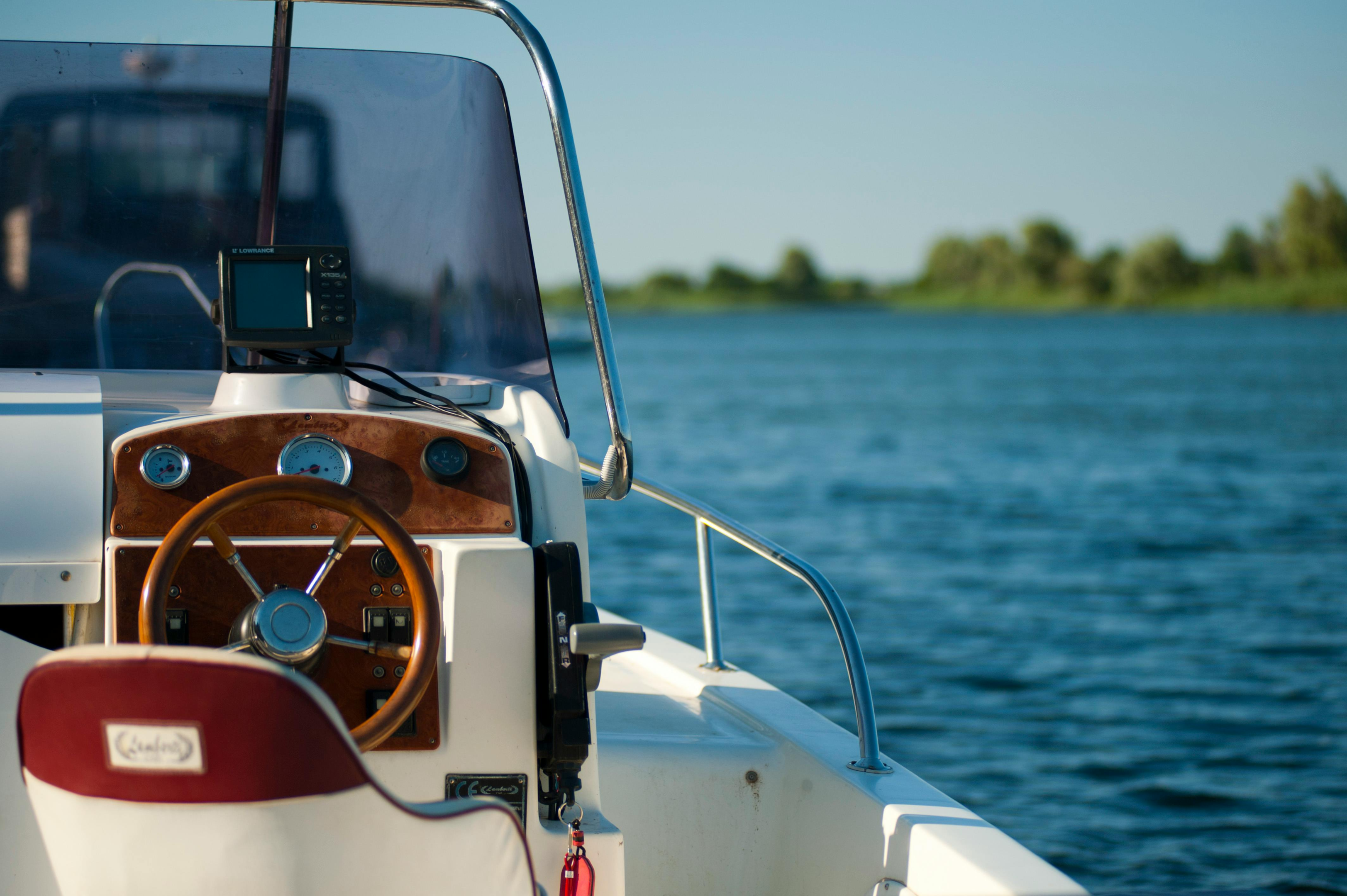
Are you dreaming of the open water?
The decision to buy a boat is not just a one-dimensional transaction—it’s the purchase of a lifestyle.
The process can seem as vast as the ocean for first-time boat buyers.
Before you set sail, consider that you aren’t just purchasing a vessel.
You’re investing in a world of responsibility, adventure, and memories.
What Determines How Much is a Boat?
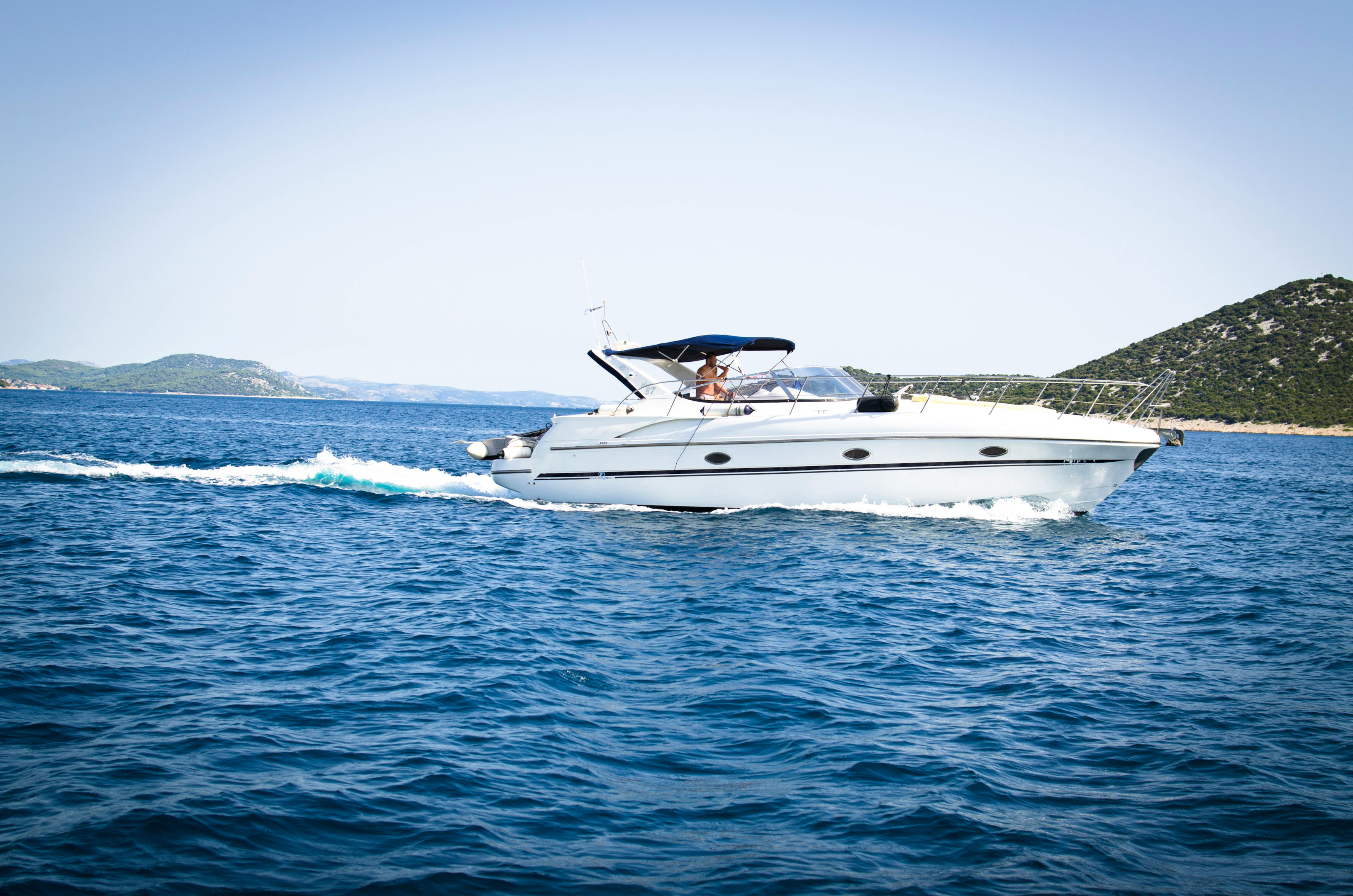
When people ask, “How much is a boat?” they usually refer to the cost of the boat itself, but that’s just the tip of the hull. The upfront cost of a boat depends on various factors, including size, make, and model.
New boats can cost anywhere from a few thousand to several million dollars, while used boats often come with more accessible price tags. But understanding the total cost means looking beyond just the sticker price.
Upfront Costs:
- Size: Generally, the larger the boat, the higher the price. Larger boats require more materials and labor and often have more advanced features.
- Make and Model: Luxury brands and models with cutting-edge technology or custom features will be more expensive.
- New vs. Used: New boats come with the latest technology and warranties at a higher price. Used boats are more budget-friendly but may require more maintenance.
- Type of Boat: The cost can vary significantly depending on the type of boat, such as a simple kayak, a fishing boat, a sailboat, or a luxury yacht.
- Additional Features: Extras like advanced navigation systems, high-end finishes, or powerful engines can add to the cost.
Ongoing Costs:
- Maintenance: Regular upkeep is vital to keep the boat in good condition. This can include engine maintenance, hull cleaning, and repairs.
- Insurance: Boat insurance is crucial to protect your investment and can vary based on the value of the boat and the coverage options.
- Docking Fees: If you plan to dock your boat at a marina, you must budget for monthly or annual fees.
- Fuel: The fuel cost can increase, mainly if you use your boat frequently or for long distances.
- Storage: Storing your boat during the off-season can incur additional costs, especially if you need to winterize it or rent storage space.
- Registration and Taxes: Boats need to be registered, and some states require boat taxes to be paid.
When considering the total cost of owning a boat, it’s crucial to account for all these factors. The upfront purchase price is just the beginning, and the ongoing expenses can significantly impact the overall cost of ownership. It’s advisable to create a detailed budget that includes the initial investment and the estimated yearly costs to ensure that you can afford to buy the boat and maintain and enjoy it for years to come.
Used vs. New Boat Prices
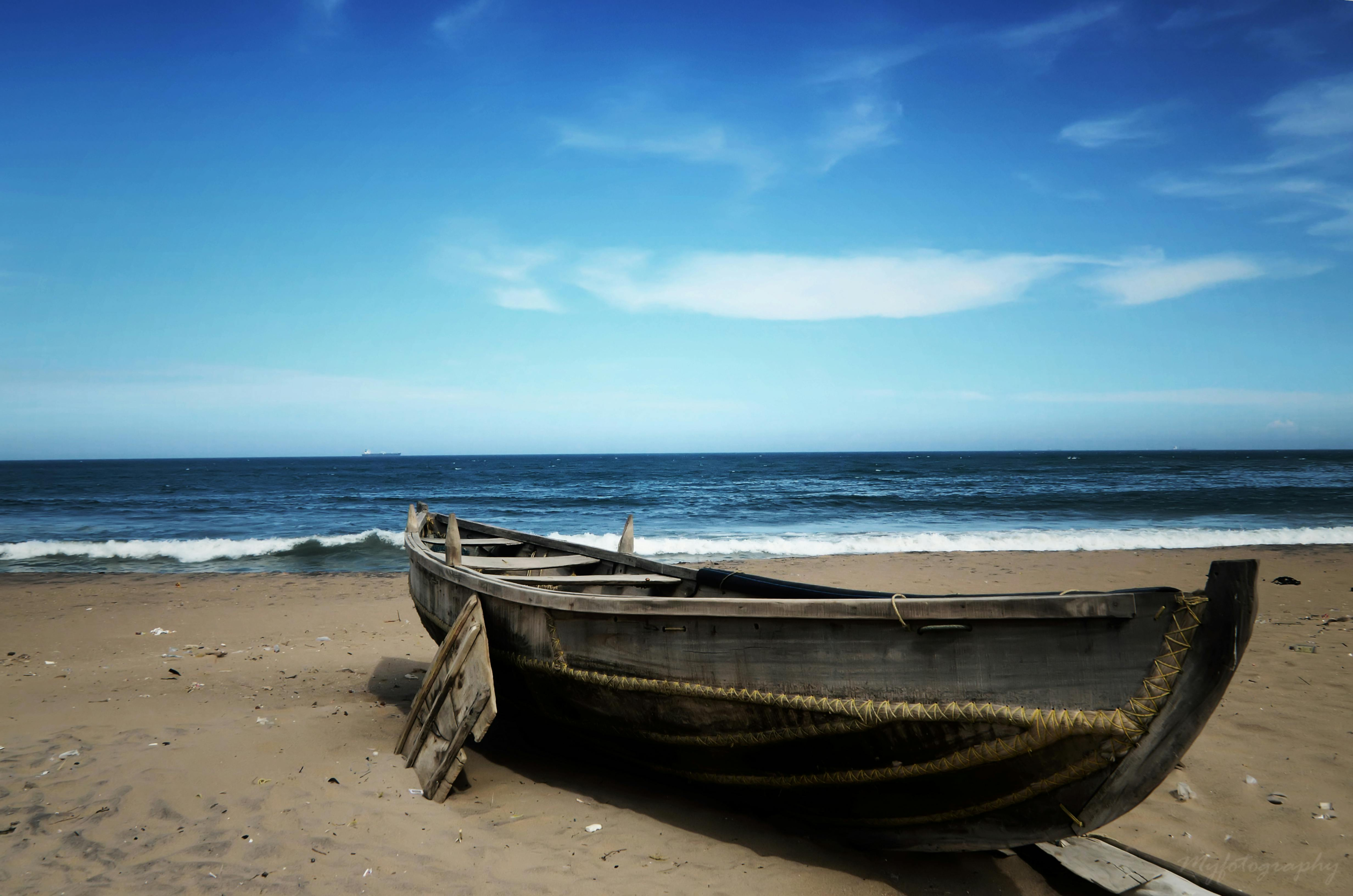
New boats have the allure of the latest technology and are typically worry-free for the first few years, reflected in their higher prices. On the other hand, used boats can represent significant savings, but they may come with more maintenance demands. Consider what you are comfortable with regarding investment upfront versus ongoing costs.
| Feature | New Boats | Used Boats |
|---|---|---|
| Price | Higher, due to the latest technology and new condition. | Lower, as the boat has already depreciated in value. |
| Technology | Equipped with the latest features and advancements. | May have older technology, depending on the age of the boat. |
| Maintenance | Typically lower in the first few years; often under warranty. | Potentially higher, as older boats may require more repairs. |
| Depreciation | Depreciates quickly in the first few years. | Already undergone significant depreciation. |
| Insurance Costs | Generally higher due to the boat’s higher value. | Usually lower, reflecting the boat’s reduced market value. |
| Customization | Can be customized to your preferences at the time of purchase. | May require modifications to meet your needs. |
| Availability | May need to wait for new models or custom orders. | Readily available in the secondary market. |
| Warranty | Usually comes with a manufacturer’s warranty. | Warranty may have expired or be limited. |
| Overall Investment | Higher initial investment, but less worry in the early years. | Lower upfront cost, but potentially higher ongoing expenses. |
When deciding between a new or used boat, consider your budget, the importance of having the latest technology, and your willingness to handle potential maintenance issues.
Boat Insurance, Taxes, Certifications, and Registrations

Insuring a boat is a must and can add a few hundred to several thousand dollars to the annual cost. Tack on sales tax, title fees, and any required certifications or registrations, and the initial cost of your purchase increases.
Boat Insurance:
- Coverage: Insurance costs vary based on the type of boat, its value, usage, and the coverage options you choose. Comprehensive coverage is recommended to protect against theft, damage, and liability.
- Annual Cost: Depending on the factors above, insurance can range from a few hundred to several thousand dollars per year.
Taxes:
- Sales Tax: When purchasing a boat, you may be subject to sales tax, which can significantly increase the initial cost. The rate varies by state and sometimes by county.
- Property Tax: Some states also assess property tax on boats, an ongoing annual expense based on the boat’s value.
Certifications:
- Boating Safety Courses: Many states require boat operators to complete a boating safety course and obtain a certification. The cost of these courses can vary.
- Special Certifications: Depending on the type of boating you plan to do (e.g., offshore sailing, fishing charters), additional certifications may be required, adding to the cost.
Registrations:
- Initial Registration: Boats must be registered in the state where they are used, which involves a fee. The cost and duration of registration vary by state.
- Renewal Fees: Registration fees are typically recurring, annually, or biennially, depending on the state.
Additional Considerations:
- Docking/Mooring Fees: If you plan to dock your boat at a marina or moor it, you’ll need to factor in these costs, which can be substantial depending on the location.
- Maintenance and Repairs: Regular maintenance is essential to keep your boat in good condition and can include cleaning, engine servicing, and repair costs.
- Fuel: The fuel cost for your boat can add up, mainly if you use it frequently or for long trips.
- Storage: If you need to store your boat during the off-season, you’ll need to consider the cost of storage facilities or winterization.
When budgeting for a boat, it’s essential to consider all these costs, not just the purchase price, to get a true sense of the total cost of ownership.
What Are the Available Boat Ownership Options?

The type of boat ownership you choose can significantly impact the initial cost and ongoing expenses:
Full Ownership
Purchasing the boat outright is the most straightforward option.
Co-ownership
Sharing ownership with friends or family can lighten the financial load and make it more affordable. Still, it also requires high trust and a clear understanding of the shared responsibilities.
Fractional Ownership
Similar to timeshares, this allows several owners to buy an interest in a boat, coordinating usage and expenses accordingly.
Lease and Charter
For a more flexible commitment, leasing or chartering a boat can provide the experience without total ownership costs.
Different Boat Loans and Options

Boat loans work much like car loans, and similar to cars, you can choose a loan term between 15 to 20 years for a new boat. Shop for the best rates and consider pre-qualification to know your budget upfront.
Personal Loans
For people with good credit and solid income, personal loans can be used to finance a boat’s purchase. This option offers added flexibility in terms of repayment plans.
Dealer or Manufacturer Financing
Many dealers and manufacturers offer financing options for boat purchases. These typically include fixed-rate loans, installment plans, and balloon payments.
Home Equity Loans
If you have significant equity in your home, you may be able to secure a favorable interest rate by using it as collateral for a boat loan. However, this risks your home if you cannot make payments.
Boat Clubs
Like a country club membership, boat clubs allow for shared access to a fleet of boats. This option avoids the commitment of ownership and allows one to try out different types of boats.
Navigating boat ownership finances involves considering initial purchase costs, ongoing expenses, new vs. used models, ownership options, and financing.
Decisions shape your nautical journey. Opt for full ownership or explore co-ownership, fractional ownership, or boat club memberships that fit your budget, lifestyle, and boating goals.
A boat’s value lies not just in dollars but in the memories and experiences on the water.
Purchase Price vs. Ongoing Costs
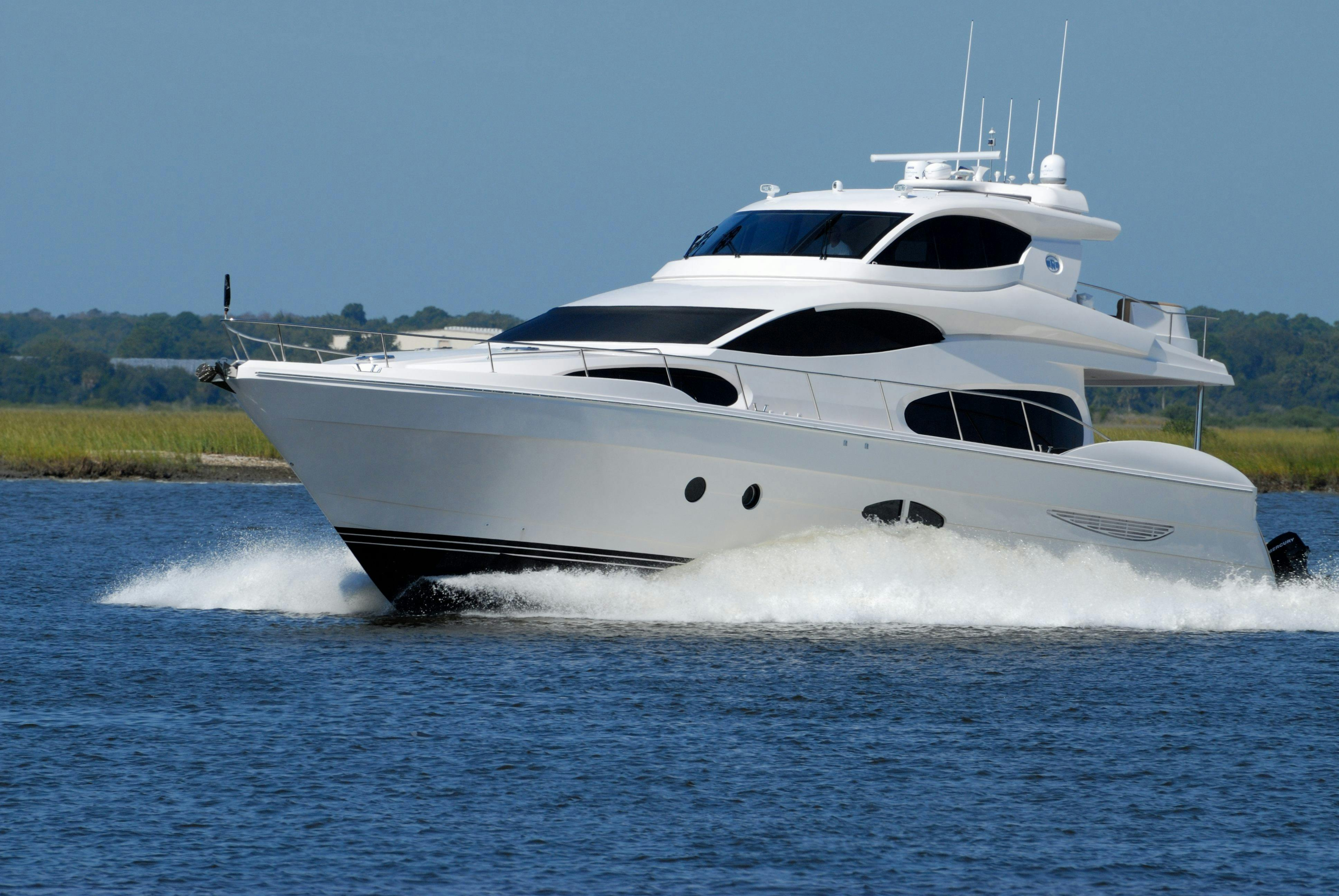
It’s essential to consider both the purchase price and the ongoing costs when buying a boat. Ongoing expenses could double or even triple what you paid for the ship over time.
Purchase Price:
- New Boats: Typically come with higher price tags due to the latest technology, features, and warranty coverage.
- Used Boats: Generally more affordable upfront, but may have less advanced technology and require more immediate maintenance.
Ongoing Costs:
- Maintenance and Repairs: Regular upkeep is crucial for the longevity of your boat. Costs can include engine maintenance, hull cleaning, and repairs. Depending on the boat’s condition and usage, annual maintenance costs can range from a few hundred to several thousand dollars.
- Fuel: The fuel cost can vary widely depending on the boat’s size, engine type, and how often you use it. Fuel expenses can add significantly to the overall cost of ownership.
- Insurance: Annual insurance premiums depend on the value of the boat, coverage options, and other factors. This is an essential cost for protecting your investment.
- Storage: If you don’t have space to store your boat at home, consider marina docking fees or storage facility costs, especially during the off-season.
- Registration and Taxes: Annual and applicable fees must be factored into the ongoing costs.
- Depreciation: Boats, especially new ones, can depreciate quickly in the first few years, affecting the overall cost of ownership.
Total Cost of Ownership:
- The total cost of owning a boat includes the purchase price plus all ongoing expenses. Over time, these ongoing costs can significantly exceed the initial purchase price, potentially doubling or tripling the total amount spent on the boat.
- Budgeting for both the short-term and long-term costs of boat ownership is crucial to avoid financial surprises and ensure that you can enjoy your boat for years to come.
By carefully considering both the purchase price and the ongoing costs, you can make a more informed decision about whether boat ownership fits your lifestyle and budget.
Types of Expenses Associated with Owning a Boat
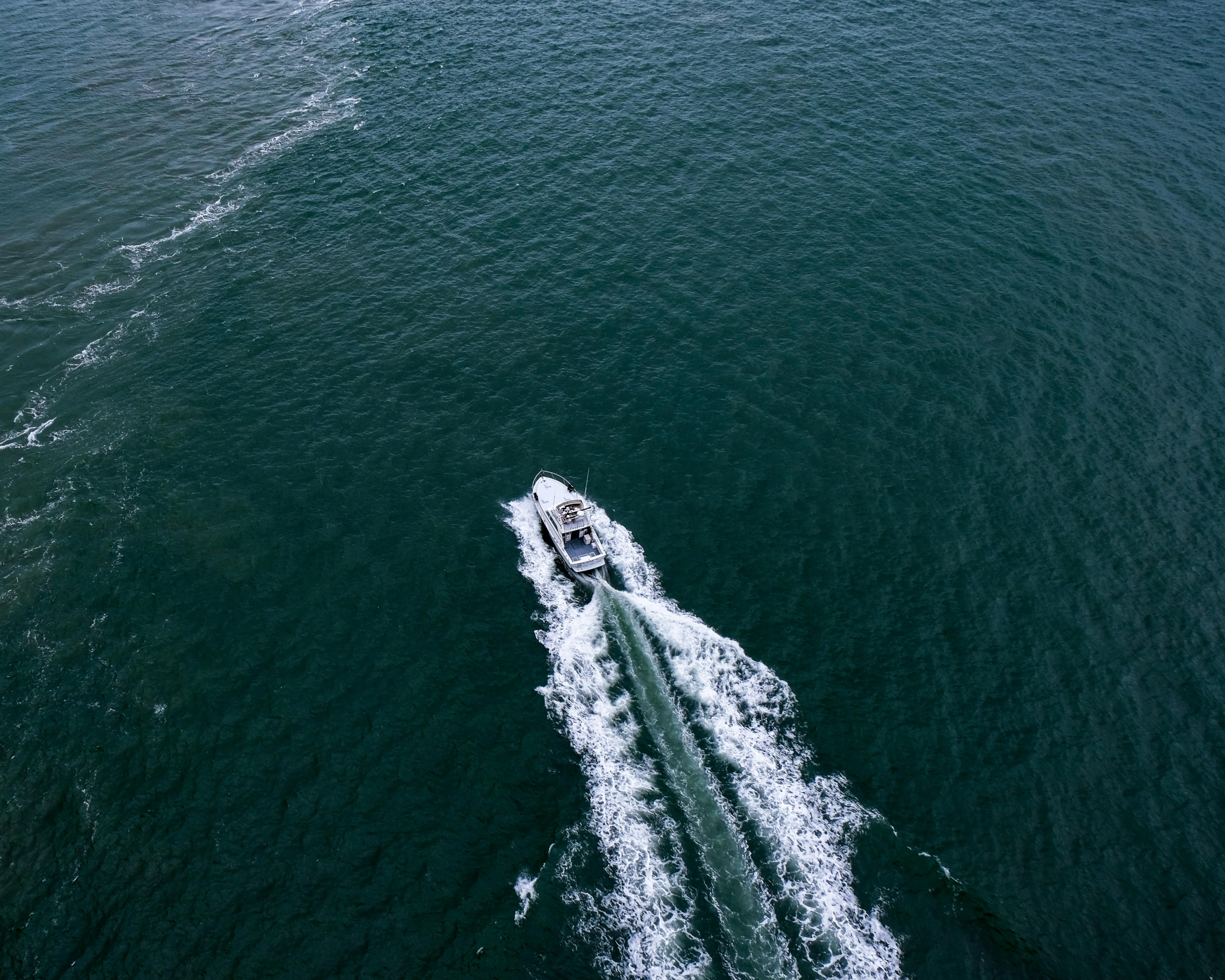
After the initial purchase, there’s a laundry list of expenses that often surprises new boat owners:
Regular Maintenance
You’ll need to winterize your boat, keep up with oil changes, and perform other regular tasks to keep your vessel in ship shape.
Fuel Costs
The size and type of boat you choose will determine your fuel costs. Expect to spend a few hundred to several thousand dollars annually.
Storage and Marina Fees
Unless you’ll be docking your boat in your backyard, you must budget for storage. This could be a few hundred dollars for dry storage or several thousand for a slip at a marina.
Docking and Mooring
Docking fees are charged when your boat is tied up somewhere. Mooring fees apply when a ship is anchored—another ongoing expense that varies greatly.
Licenses and Tax
Depending on where you live and your boat, there may be additional licenses and taxes you’ll need to pay.
Total Cost of Boat Ownership
Putting it all together, the costs of owning a boat can seem daunting, but they are navigable. When you total the purchase price, insurance, taxes, dock fees, maintenance, and fuel, the final figure is as vast as the sea and specific to the individual boat and owner.
Here are some standard boats and their associated costs:
Putting it all together, the costs of owning a boat can seem daunting, but they are navigable. When you total the purchase price, insurance, taxes, dock fees, maintenance, and fuel, the final figure is as vast as the sea and specific to the individual boat and owner.
Here are some common boats and their associated costs:
| Boat Type | Avg. Purchase Price | Ann. Insurance Cost | Mo. Dock Fees |
| Small Fiberglass Runabout | $20,000 – $50,000 | $300 – $500 | $200 – $400 |
| Sailboat (30ft) | $60,000 – $100,000 | $800 – $1,200 | $500 – $700 |
| Pontoon Boat (22ft) | $20,000 – $50,000 | $300 – $500 | $200 – $400 |
| Offshore Fishing Boat (35ft) | $100,000 – $500,000+ | $1,000 – $2,000+ | $500 – $1,000 |
These figures serve as a general guide and are not definitive. Always do your research for the specific boat you’re considering to get the most accurate estimates of costs. Additional expenses may also depend on location, usage, and maintenance needs.
Frequently Asked Questions (FAQ)
How much is a pontoon boat?
Pontoon boats are famous for their stability and comfort. A new one can cost around $20,000 to $50,000; used ones can be found for significantly less.
How much is it to rent a boat?
Renting a boat for a day can range from $200 for a smaller boat to $1,200 or more for a yacht, depending on the location and boat type.
How much is a houseboat?
Houseboats, essentially floating houses, can cost from $50,000 for a small, older model to several million dollars for a luxury houseboat.
How much is insurance on a boat?
The annual cost of boat insurance can range from $300 to $500 for a smaller boat to $1,000 or more for a larger vessel or one with a high value.
How much is it to rent a boat for a day?
Renting a boat for a day might cost around 1-3% of its value. For example, a $50,000 boat might be rented for $500 to $1,500 per day, depending on season and demand.
How much is a speed boat?
Speedboats vary significantly in cost. A smaller model could cost around $5,000 to $50,000, while high-performance crafts can start at $100,000 and quickly reach the millions.
How much is a fishing boat?
Fishing boats come in all shapes and sizes, but a basic, entry-level model could start at around $10,000 to $20,000 for a new ship. Used boats can be found for less.
How much is a bass boat?
Bass boats, specialized for – you guessed it – bass fishing, can range from $20,000 for a basic model to $60,000 or more for a top-of-the-line boat.
How much is a small boat?
Like a simple dinghy, a small boat can cost as little as a few thousand dollars. The price depends mainly on the material, make, and model.
How much is a sailboat?
Sailboats are as varied as they are numerous. Basic small sailboats can start from around $10,000, while more significant, luxurious models can cost several hundred thousand dollars or more.
Are boats a good investment?
Boats are not typically an investment in the sense of appreciating financial value. They depreciate like cars but offer considerable value in experiences and lifestyle.
How much does it cost to dock a boat?
Marina slip fees can range from a few hundred dollars per month for smaller boats to thousands for yachts, based on the size of the vessel and the amenities the marina offers.
Conclusion
Buying a boat is a significant decision not just for one’s bank account but also for one’s free time and lifestyle. It’s a personal investment that can’t be measured wholly in dollars, but in the sunsets watched from the water, the fish reeled in, and the calm from being out on the water. Remember, each boat is unique, and you should carefully consider your planned usage, budget, and other personal factors before committing to a purchase. After all, a boat is as much a part of you as it is your possessions.
GET IN TOUCH
Find Storage Units Near You!
Storage Unit Size Guides
5×5 Storage Unit Guide
GET IN TOUCH
Find A 5×5 Storage Unit Near You!
5×10 Storage Unit Guide
GET IN TOUCH
Find A 5×10 Storage Unit Near You!
10×10 Storage Unit Guide
GET IN TOUCH
Find A 10×10 Storage Unit Near You!
10×15 Storage Unit Guide
GET IN TOUCH
Find A 10×15 Storage Unit Near You!
10×20 Storage Unit Guide
GET IN TOUCH
Find A 10×20 Storage Unit Near You!
10×25 Storage Unit Guide
GET IN TOUCH
Find A 10×25 Storage Unit Near You!
10×30 Storage Unit Guide
GET IN TOUCH
Find A 10×30 Storage Unit Near You!
New SecureSpace Self Storage Facilities
SecureSpace Self Storage Maspeth Queens

59-20 Borden Ave, Maspeth, NY 11378
SecureSpace Self Storage Miami Coral Way

2811 Coral Way, Miami, FL 33145
SecureSpace Self Storage Downtown Los Angeles

1535 Essex St, Los Angeles, CA 90021
SecureSpace Self Storage Van Nuys

SecureSpace Self Storage Rancho Penasquitos

10389 Azuaga Street, San Diego, CA 92129
SecureSpace Self Storage Livingston

644 W Mount Pleasant Ave, Livingston, NJ 07039
SecureSpace Self Storage Philadelphia Glenwood

2501 N 15th St, Philadelphia, PA 19132
SecureSpace Self Storage Langhorne

SecureSpace Self Storage Manhattan

424 East 90th Street, New York, NY 10128
SecureSpace Self Storage College Point

131-21 14th Ave, College Point, NY 11356
SecureSpace Self Storage Seattle Greenwood

9309 Aurora Ave N, Seattle, WA 98103
SecureSpace Self Storage Elmsford

Checkout Some Of Our Teams Favorite Articles

- California – Northern Self Storage
- Antioch, CA
- Berkeley, CA
- Los Gatos, CA – Farley
- Los Gatos, CA – University
- Milpitas, CA
- Richmond, CA
- San Jose, CA – Hedding
- San Jose, CA – Lonus
- San Jose, CA – Teresa
- San Leandro, CA















